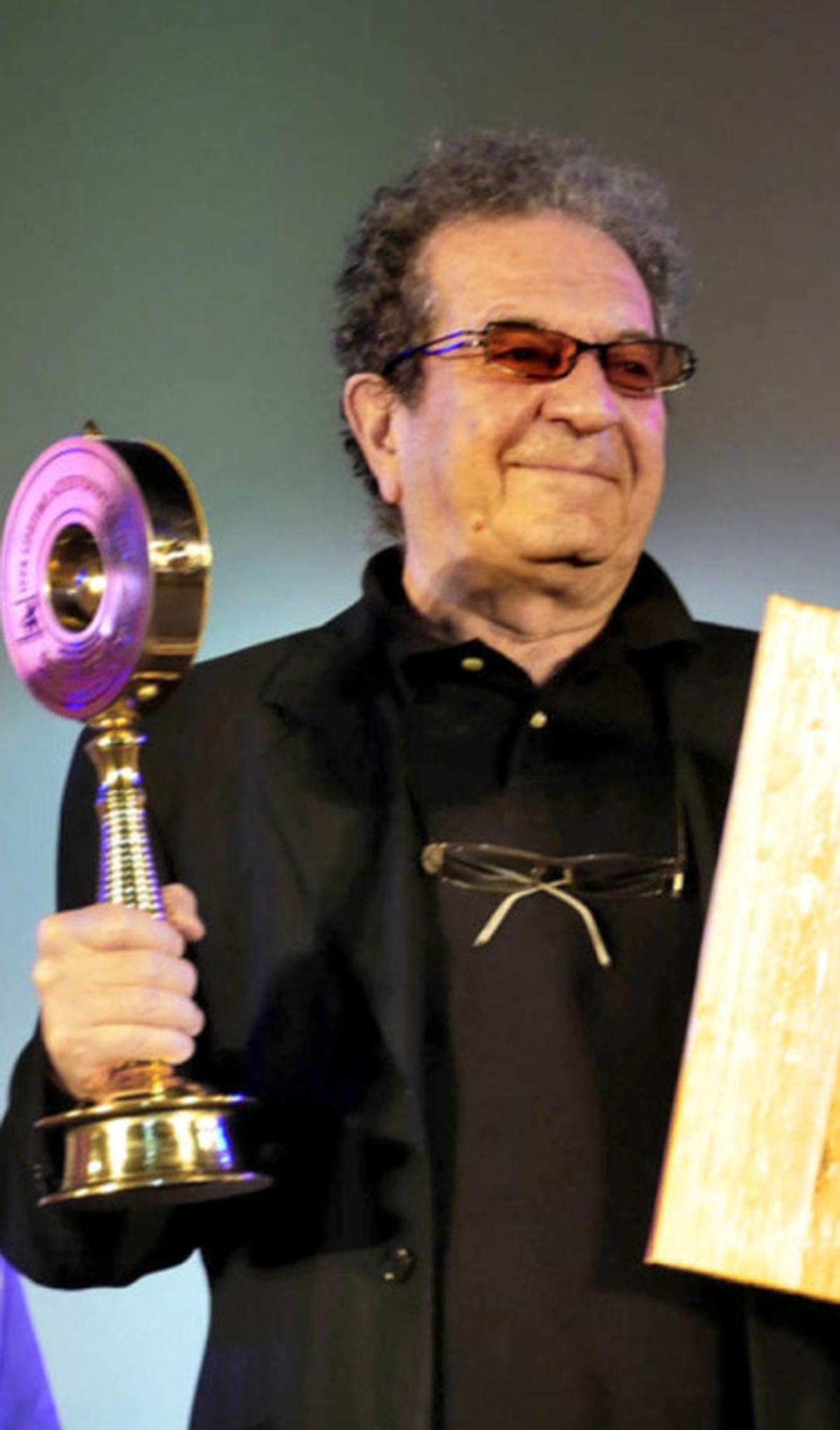
Iranian filmmaker’s murder shocks film buffs in Kerala
https://th-i.thgim.com/public/news/national/kerala/kx7uxe/article67423712.ece/alternates/LANDSCAPE_1200/Dariush%20Mehrjui3.JPG
Dariush Mehrjui
| Photo Credit: S.R.Praveen
A murder in Iran on Sunday sent shock waves among film buffs in Kerala. Iranian filmmaker Dariush Mehrjui, who along with his wife Vahideh Mohammadifar, was found murdered at their house on Sunday, was the toast of the International Film Festival of Kerala (IFFK) delegates in 2015. The filmmaker was here to receive the festival’s Lifetime Achievement Award that year, when the IFFK also honoured him with a retrospective of his films.
Their daughter found the couple dead with multiple stab wounds to the neck inside their home in Tehran on Sunday. Though there have been reports of some online threats against the filmmaker, investigators have not yet pointed at any suspects.

Dariush Mehrjui with the Lifetime Achievement Award at the IFFK.
| Photo Credit:
S. Mahinsha
Impact of ‘The Cow’
A protégé of French filmmaker Jean Renoir, during his days at the University of California, Los Angeles, Mehrjui has been one of the pioneers of the new wave in Iranian cinema that gave us the works of everyone from Kiarostami to Farhadi. Back in 1969, after an unsuccessful debut, he announced his arrival with the film The Cow (Gaav), which is now hailed as one of the initiators of new wave cinema in his country.
The film tells us about the unusual and at times obsessive love that Hassan, an Iranian villager, has for his cow. Its disappearance pushes him into a state of madness, with him behaving like a cow, mooing occasionally and eating grass. The Shah government found the film offensive and banned it, but post the Islamic revolution, Ayatollah Khomeini surprisingly found the film impressive and commissioned new prints.
Screenplay writing
In an interaction with The Hindu, during his visit here, he had spoken about how screenplay was the most important element of a film. “The science of screenplay writing is important, much more important than the actual directing of the film. A good director is someone who could direct a screenplay, written by yourself or somebody else. I think it is the story that runs cinema, not the photography, or editing. When the screenplay is good, it makes the other elements also good,” the filmmaker, who has written the screenplay of all his films, had said.
Censorship
He spoke of how many of his films had to undergo censorship after the revolution. In later years, he focussed on making documentaries too, with a classic one on the blood donation mafia, which came as an extension of his film The Cycle. He has also made screen adaptations of works by several authors including J.D. Salinger. His career in the 1990s was marked by a series of women-oriented films including Leila and Sara.


